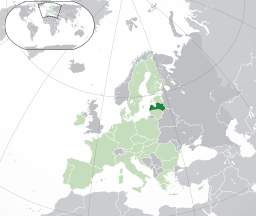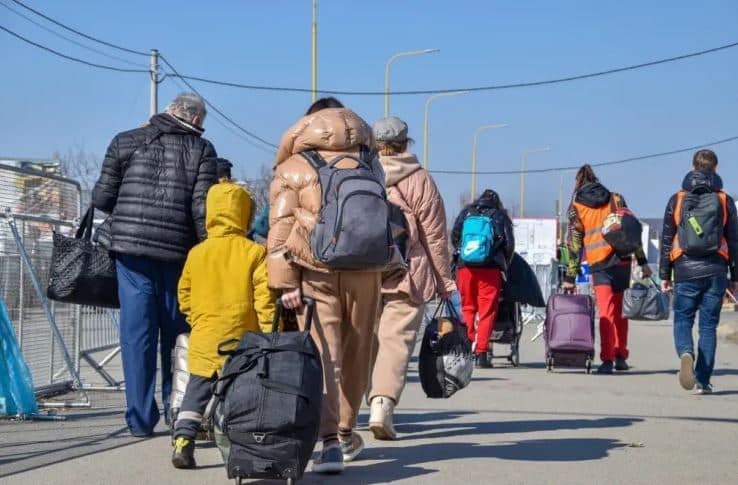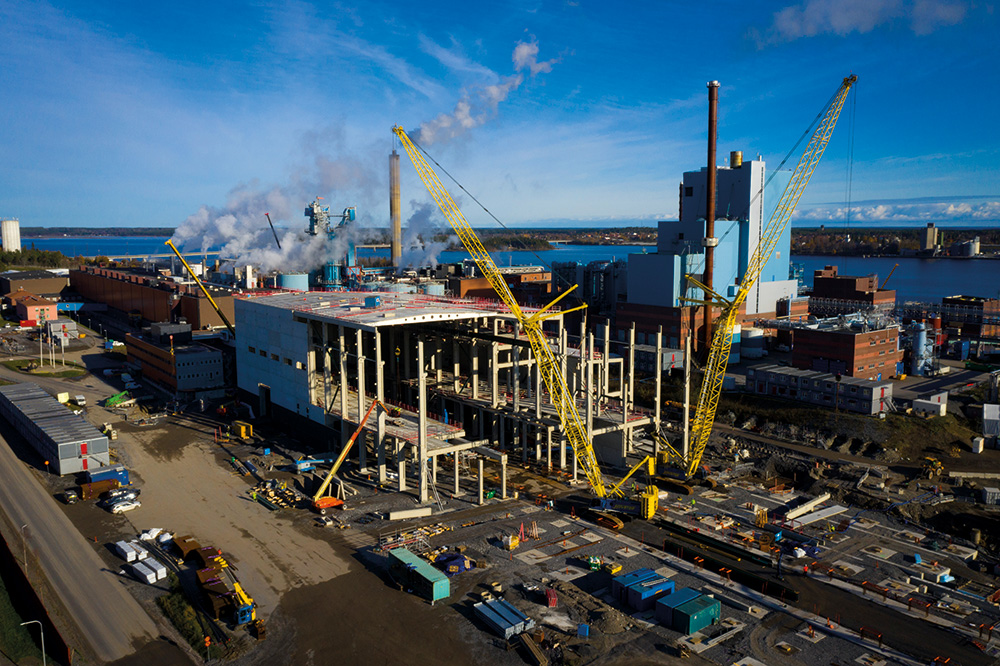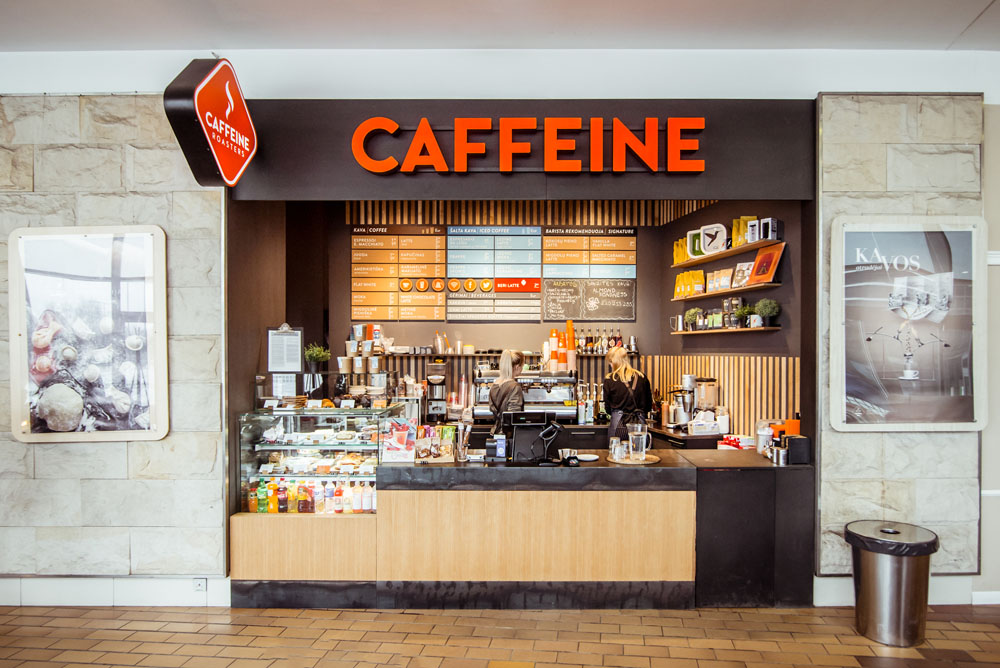[vc_row][vc_column width=”1/2″][vc_column_text]
Latvia
The light green area is the rest of the European Union
Latvia was the 97th largest economy in the world by nominal GDP in 2018. GDP per capita is $18,089 USD. Due to its geographic position, it is a strategic transit state in the Baltics, with Riga and Ventspils among the biggest seaports in the region. It is ranked 35th in the World Bank's Human Capital Index, and trade was at 118 percent of GDP in 2018. Its economy is also diverse with a ranking of 35th in the Economic Complexity Index (2017). It is a member of the EU and OECD. Services was the largest economic sector in 2018 (63.5 percent of GDP), followed by manufacturing (10.5 percent), and agriculture (3.3 percent). In 2017, the largest export sectors were services (28 percent), agriculture (26 percent), minerals (8.3 percent), and chemicals (7.7 percent). The largest individual exports were transport services (11.8 percent), ICT services (9.6 percent), refined petroleum (4.9 percent), travel and tourism (4.5 percent), and wood sawed lengthways (3.4 percent). Its largest export partners were Lithuania (15 percent), Estonia (10.7 percent), Russia (8.4) percent, and Germany (6.5 percent). The largest goods imports were refined petroleum (16.2 percent), cars (3 percent), and medicaments packaged (2.5 percent). After World War One and independence in 1920, Latvia rebuilt its manufacturing sector and completed land reforms. Agriculture and timber led the way through the depression. During World War Two, Germany invaded then Russia, with the Soviets maintaining control until 1991. Under Soviet control, agricultural was collectivised and major industries were developed to serve the USSR. Large numbers of Russians came to work in the factories. After independence, the economy experienced a sharp decline as the economy transitioned to a market economy and the Russian export market was lost. The economy was stabilised with the introduction of its own currency and reduced government spending. The government also pursued trade liberalisation, signing a free-trade agreement with the EU in 1994. The economy returned to growth in 1994 but was interrupted by a banking crisis in 1995. After wide-spread reforms during the accession process and accession to the EU in 2004, the economy grew rapidly. FDI fell during the global financial crisis and the economy contracted sharply in 2008-2009. Investors were concerned by an unsustainable current account deficit, the collapse of the real estate market, and high debt. Latvia asked the EU and IMF for help and following the pegging of the currency to the euro and austerity measures, the country has returned to growth.
[/vc_column_text][vc_column_text] Its population in 2018 was 1,929,938 [1]
Its population in 2018 was 1,929,938 [1]
 In 2015, 38.10% of its total energy
In 2015, 38.10% of its total energy
consumption was renewable [2]
 In 2021, its GDP grew by 4.48% [2]
In 2021, its GDP grew by 4.48% [2]
 In 2021 it had a negative Current
In 2021 it had a negative Current
Account Balance of US$bn 1.11 [3]
 Its unemployment rate in 2021 was 7.56% [3]
Its unemployment rate in 2021 was 7.56% [3]
 Its Expenditure on R&D (as a percentage of
Its Expenditure on R&D (as a percentage of
GDP) in 2020 was 0.71% [2]
What free trade areas or economic unions is it a member of?
Member of the European Union (EU) since 01/05/2004
Other members:
Austria, Belgium, Bulgaria, Croatia, Cyprus, Czechia, Denmark, Estonia, Finland, France, Germany, Greece, Hungary, Ireland, Italy, Lithuania, Luxembourg, Malta, Netherlands, Poland, Portugal, Romania, Slovakia, Slovenia, Spain, Sweden
What trade deals are there between European Union and other countries and economic unions?
EU - Andorra Customs Union (from 01/01/1991)
European Single Market (SM) (from 01/01/1993)
EU - Sri-Lanka Co-operation and Partnership Agreement (from 01/04/1995)
EU - Türkiye Customs Union (from 31/12/1995)
EU - Faroe Islands Agreement (from 01/01/1997)
EU - Palestinian Authority Interim Association Agreement (from 01/07/1997)
EU - Tunisia Association Agreement (from 01/03/1998)
EU - Armenia Partnership and Cooperation Agreement (from 09/09/1999)
EU - Morocco Association Agreement (from 01/03/2000)
EU - Israel Association Agreement (from 01/06/2000)
EU - Mexico Global Agreement (from 01/10/2000)
EU - San Marino Customs Union (from 01/04/2002)
EU - Jordan Association Agreement (from 01/05/2002)
EU - North Macedonia Stabilisation and Association Agreement (from 01/04/2004)
EU - Pakistan Co-operation agreement (from 29/04/2004)
EU - Egypt Association Agreement (from 01/06/2004)
EU - Chile Association Agreement and Additional Protocol (from 01/03/2005)
EU - Algeria Association Agreement (from 01/09/2005)
EU - Lebanon Association Agreement (from 01/04/2006)
EU - Albania Stabilisation and Association Agreement (from 01/04/2009)
EU - Pacific States Interim EPA (from 20/12/2009)
EU - Montenegro Stabilisation and Association Agreement (from 01/05/2010)
EU - Central America Association Agreement (from 01/08/2013)
EU - Serbia Stabilisation and Association Agreement (from 01/09/2013)
EU - Bosnia and Herzegovina Stabilisation and Association Agreement (from 01/06/2015)
EU - South Korea Free Trade Agreement (from 01/07/2015)
EU - Kosovo Stabilisation and Association Agreement (from 01/04/2016)
EU - Georgia Association Agreement (from 01/07/2016)
EU - Moldova Association Agreement (from 01/07/2016)
EU - Canada Comprehensive Economic and Trade Agreement (CETA) (from 21/09/2017)
EU - Eswatini (SADC) Economic Partnership Agreement (from 05/02/2018)
EU - Lesotho (SADC) Economic Partnership Agreement (from 05/02/2018)
EU - Mozambique (SADC) Economic Partnership Agreement (from 05/02/2018)
EU - Namibia (SADC) Economic Partnership Agreement (from 05/02/2018)
EU - South Africa Economic Partnership Agreement (from 05/02/2018)
EU - Botswana (SADC) Economic Partnership Agreement (from 05/02/2018)
EU - Japan Economic Partnership Agreement (from 01/02/2019)
EU - Eastern and Southern Africa States free trade agreement (from 07/02/2019)
UK - EU Trade Deal (from 01/01/2021)
[/vc_column_text][vc_column_text]What trade deals are there with other countries and economic unions?
None
[/vc_column_text][/vc_column][vc_column width=”1/2″][vc_column_text]IFC: Ukrainian Refugees Access Finance via New Digital Data Corridors
Svenska Cellulosa Aktiebolaget SCA: Growing Forests and Renewable Products to Fight Climate Change
Reitan Convenience: Value-Based Leadership to Drive Sustainability Effort
Russia – Moving Borders Politely
Trade with the United Kingdom
Source: UK Office for National Statistics, October 2022.
Contains public sector information licensed under the Open Government Licence v3.0.
Loading, Please Wait!
This may take a second or two.



















































































